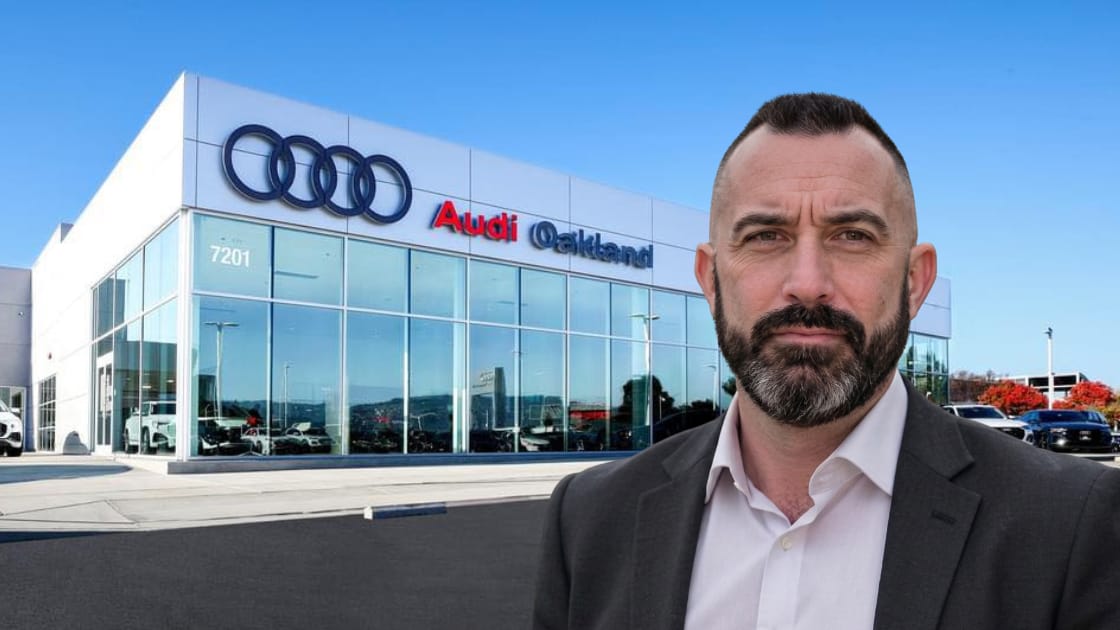Most dealers fight cyber and fraud risk with vendors and outsourced tools. But Robert Woolsey decided that wasn’t enough.
Driving the news: As corporate security director at Swickard Auto Group, he’s been pulling that responsibility back inside the four walls by building internal fraud reporting, empowering store teams to stop deals, and using OEM tools and law enforcement partnerships to track stolen units “all the way to ports of entry.”
“It used to be physical, right? They used to try and steal cars and used to try and steal tires and those sorts of things,” Woolsey told Daily Dealer Live hosts Sam D’Arc and Uli de’ Martino. “Now it's turned into information.”
The biggest hits at dealerships now come from “phishing, smishing, a lot of impersonation attempts,” and fraud built on bad identity and fake documents, explained the corporate security director.
Flipping the script: Coming into Swickard, Woolsey says the group, like many others, had focused heavily on external assistance and external vendors when it came to security and dealing with risk.
The highly seasoned corporate security expert’s take on that approach is blunt: “The only people that really care about your business and care about your customers, is you,” he explained.
The goal became building and prioritizing a culture where GMs, sales, and service leaders “really understand that this is their responsibility” to minimize the risk to the stores.
OUTSMART THE CAR MARKET IN 5 MINUTES A WEEK
Get insights trusted by 55,000+ car dealers. Free, fast, and built for automotive leaders.
Between the lines: On the solution side, Woolsey said the group has focused on PCI compliance processes, working with places like WorldPay to make sure that all the banking information is being transferred appropriately, and better encrypting processes end-to-end.
Culturally, Swickard has also helped to facilitate more aggressive theft-prevention measures across the board, with very specific security tactics in place.
Using tools like docuPAD to verify and check information to make sure it’s correct.
When a customer comes in, take the necessary steps to verify their identity.
Teaching sales and F&I associates how to identify the red flags in documents.
Having an internal investigator whose entire job is reviewing fraud deals.
The group also built an internal fraud-reporting system through Actual Automotive with automatic routing to CFO/security/corporate investigator.
“We'll have…an F&I manager that'll review a document and go, ‘this just does not look right…doesn't smell right, will escalate it immediately,” explained Woolsey. “We've seen a complete culture shift here where every deal, every person, every single interaction at the store level, they are the front lines and they're doing everything they can to make sure that we as a company are more secure.”
Also worth noting: Swickard’s approach to addressing vehicle fraud and theft includes utilizing the OEM and… their internal GPS systems to be able to track vehicles in real time, working with Homeland Security and law enforcement in tracking units “all the way to ports of entry,” and ensuring that the store and bank are made whole.
“We have not had a stolen vehicle in probably a year and a half to two years,” even though “sports cars… Hellcats have been a traditional pain for us,” said Woolsey.
Bottom line: For Woolsey, the core security message is simple: cultivate a culture of ownership, build internal systems, and empower store-level people to stop bad deals that “don't smell right,” and back them with technology, a clear playbook, and tight partnerships with OEMs and banks to get assets back quickly.
A quick word from our partner
Reclaim Wrench Time with Pencilwrench
You don’t hire technicians to be writers. Yet their pay — and your reimbursement — depend on clear, accurate, OEM-specific repair stories. Pencilwrench by StoneEagle makes it simple:
Guided, point-and-click workflows
OEM-specific cause-and-correction phrasing
Warranty and “Problem Not Found” claims supported
Recall documentation that stands up to review
Save time, prevent denials, and keep revenue flowing.












